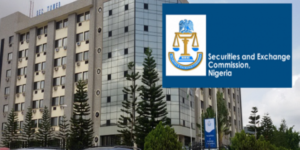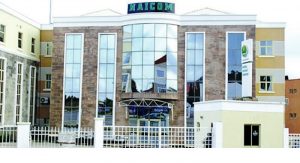
Nigeria’s gross domestic product (GDP) needs to expand by a 21.95 per cent constant growth rate and the naira firmly held at N1,500/$ exchange value to achieve the $1 trillion economy target by 2031, Afrinvest West Africa Limited has noted.
In its 20th Nigeria Banking Sector Report 2025 entitled ‘ACT-BOLD: Beyond a Trillion Dollar Economy’, released in Lagos, on Tuesday, Afrinvest explained that at a rebased GDP nominal size of N372.8 trillion, the country requires a minimum yearly growth rate of 21.95 per cent to attain $1 trillion economy by 2031.
The report indicated that despite President Bola Tinubu’s confidence that the banking industry would support the $1 trillion economy target, there was a need to address longstanding impediments that constrain broad-based growth potential.
Without such intermediation, it added, banks would only deliver, at best, uneven and subpar growth across a few services-based sectors, while the overall economy continues to grow at a slow pace.
The report unveiling, which attracted many financial sector stakeholders and market leaders, also highlighted the role of monetary policy tightening in achieving a subdued inflation rate, restoring market confidence and stabilising the foreign exchange (FX) rate.
According to the report, the Olayemi Cardoso-led Central Bank of Nigeria (CBN) has hiked the interest rate by a cumulative of 875 basis points to 27.5 per cent between February 2024 and November 2024.
It noted that the ongoing recapitalisation of the banking industry has shown that several banks initiated or completed a capital raise to strengthen their buffer.
“As of mid-2025, our estimate suggests that banks have collectively raised over N2.5 trillion through rights issues, public offerings and private placements,” it noted.
At least four lenders – Access Corporation, Zenith Bank, Ecobank and Lotus Bank – reportedly met the new capital thresholds, while several others are on track to meet the June 2026 deadline, it stated.
“A few institutions are exploring merger and acquisition options as a compliance strategy. Overall, the growth of the banking sector (proxied by financial institution GDP) has remained resilient, clearing at 15 per cent in real terms in the first quarter of 2025 and ranking among the top 10 contributors to the GDP in the period,” the report said.
Speaking during the unveiling, the Group Managing Director, Afrinvest West Africa Limited, Dr Ike Chioke, described the company’s 30 years of operations as a journey of resilience, innovation, and leadership meant to shape Nigeria’s financial markets.
He said the 30-year journey unfolded against a backdrop of shifting global and domestic political, macroeconomic and capital markets realities.
“From the return to democracy in 1999, to the dot-com bust of 2000 to 2002, Nigeria’s banking reforms between 2004 and 2005, the global financial crisis of 2007 to 2009, the oil price crash of 2014 to 2016 and, more recently, the COVID-19 shock of 2020, as well as the global inflation surge of 2021 to 2023, each era tested resilience but also opened new opportunities.
“Afrinvest has grown through these cycles, always adapting, always innovating,” Chioke stated.
He said the report, first published in 2006, remained a compass for policymakers, investors and financial institutions navigating the changes in Nigeria’s economy.
According to him, each of the past 20 editions provides clarity in moments of uncertainty and ambition in times of reform. He described the 20th edition as both a call to action and a framework for Nigeria’s growth.






